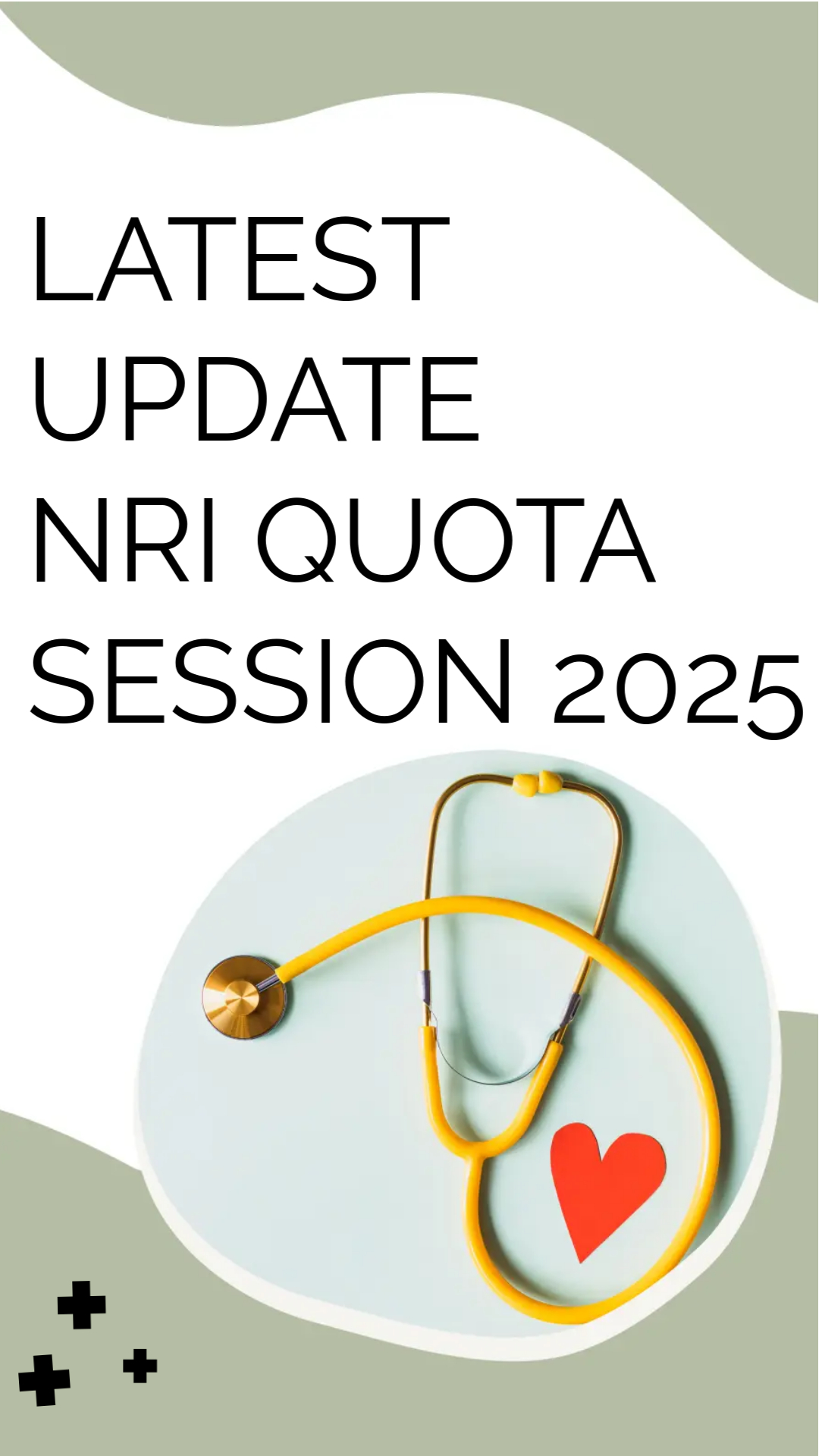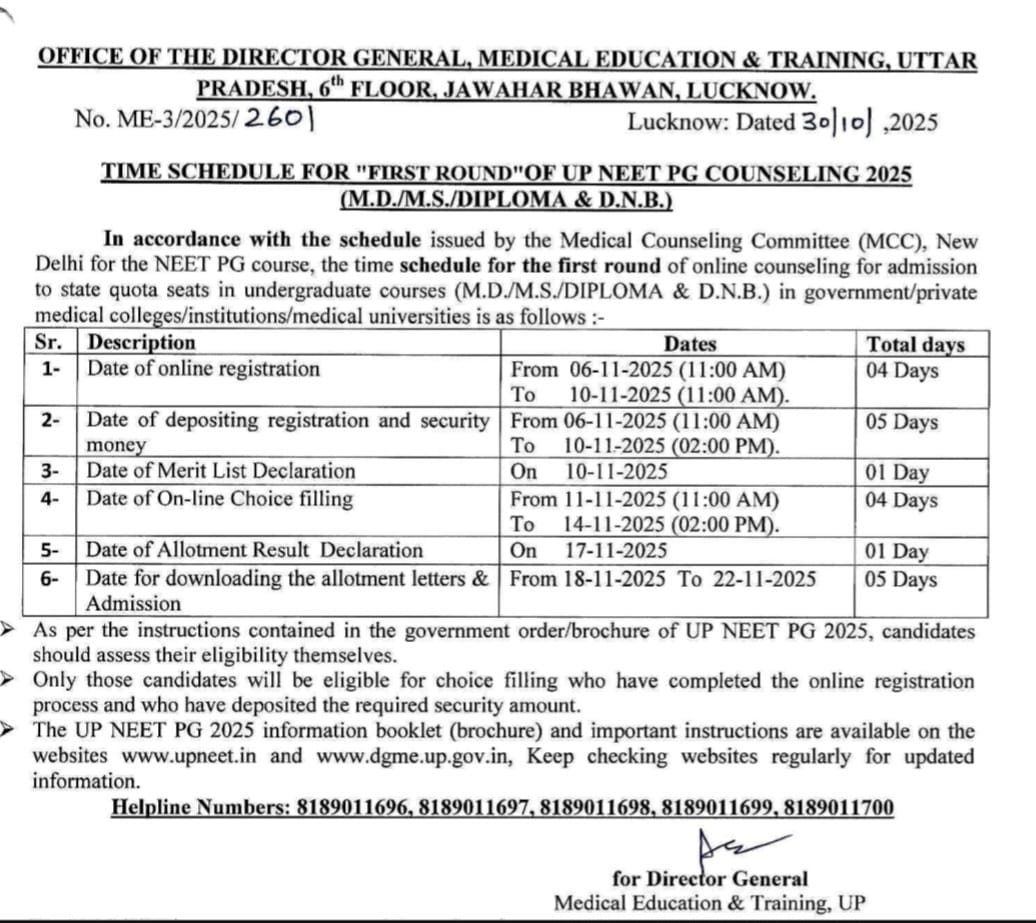Latest NRI quota update for the 2025–26 session, covering criteria, documentation, fees, and the admission path under NEET‑UG:
What’s New for 2025?
The MCC (Medical Counselling Committee) has clarified that all NRI‑quota aspirants must produce an NRI certificate issued by the Indian Mission or MEA, confirming NRI/OCI status or sponsorship—a failure or discrepancy in documents could lead to seat cancellation
Karnataka’s KEA introduced stricter documentation rules: now requiring a tahsildar‑signed family tree (no notarized affidavits), an embassy certificate (issued within past 6 months), and valid passport, visa, and bank passbook from the sponsor.
Panjab University continues to use a broad NRI definition (parent, sibling, grandparent, cousin abroad, even via affidavit), allocating an extra 10% seats beyond sanctioned strength.
Chhattisgarh has revised counselling rules: state domicile candidates now get priority for vacant NRI seats, online counselling from July 30, and bond period cut from 2 years to 1 year
Who Is Eligible?
According to MCC and institutional norms, candidates eligible for the NRI quota include:
NRIs themselves (Indian citizens living abroad).
OCI/PIO holders.
Wards of NRIs/OCI/PIOs, even if residing in India.
Students sponsored by NRIs, provided the sponsor is a first‑degree relative—father, mother, sibling, uncle/aunt, grandparent, or even cousin (varies by institution).
NEET‑UG must be qualified — there’s no separate NRI NEET exam
Academic & Eligibility Criteria
Mandatory requirements:
NEET‑UG 2025 qualification.
Age: Minimum 17 years by December 31, 2025.
Education:
Preferably 10+2 from abroad, including Physics, Chemistry, Biology/Biotechnology, and English.
If educated in India, must still meet core subject requirements and NEET cut‑off
Passport & proof of NRI status: Valid passport (candidate or sponsor) and embassy-issued NRI certificate.
Some institutions (like PU) may allow looser definitions using just affidavits.
Required Documents
Although specifics vary slightly by state/university, the usual document checklist includes:
NEET scorecard and admit card
Passport of candidate and sponsor
Visa/resident permit of sponsor
Embassy / MOFA certificate for sponsor’s NRI status (issued recently, e.g. past 6 months in Karnataka)
Tahsildar-signed family tree or equivalent proof (state-mandated)
Sponsorship affidavit and proof of relationship (birth certificate, affidavits)
Sponsor’s bank statements, employment proof, visa
10th/12th mark sheets, transfer certificates, DOB certificates
Bond or bank guarantee, if required (e.g., Rajasthan).
Fee Structure
Typically ranges from USD 20,000 to 45,000 per year, though some private/foreign institutions may charge up to USD 50,000 per year .
Fees usually paid in foreign currency (NRE/NRO) or via approved banking channels
How to Secure Admission
Register and appear for NEET UG 2025, then qualify.
Register for counselling:
MCC: Apply under “NRI quota” for All-India & deemed-university seats.
State authorities: Choose NRI quota during registration.
Document verification: At state/counselling centre (e.g. Karnataka: July 8–10 by rank group)
Seat allotment: Via online rounds; vacant NRI seats may be converted into general/management seats in some states
Fee payment & bond: Pay complete fee, sign bond if required.
Final admission: Reporting to college, enrollment, hostels, etc.
Tips to Navigate the Process
Start early: Document procurement (e.g., embassy certificates, tahsildar verification) takes time.
Check state/university-specific nuances: e.g., PU allows cousin sponsorship via affidavits; Karnataka insists on tahsildar certificates alone.
Monitor MCC and state counselling notices: Deadlines vary by region — admissions may begin as early as late July 2025.
Be meticulous with documentation: Fake/incorrect documents can lead to disqualification.
Summary Table
| Step | Action |
|---|---|
| 1 | Qualify NEET UG 2025 |
| 2 | Establish eligibility (NRI/OCR/PIO/ward/sponsor) |
| 3 | Gather passport, visa, embassy/NRI certificates, family tree |
| 4 | Register for MCC/state counselling under NRI quota |
| 5 | Undergo document verification |
| 6 | Participate in seat allotment |
| 7 | Pay fees, sign bond, join college |
Final Thoughts
The 2025 NRI quota system has seen two major shifts:
Strengthened documentation requirements (especially in Karnataka).
Centralization via MCC — no more separate deemed university admissions; all done through centralized counselling.
While eligibility now demands stricter proof, the comparative lower competition and flexibility in sponsorship remain key advantages. To increase chances:
Ensure flawless documentation,
Track state/university dates,
Have a backup plan in case some seats convert to general vacancies.



